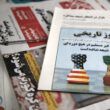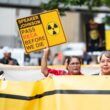Agreement, disagreement, and a path forward
By Ta Minh Tuan, October 25, 2012
To this point, authors in this Roundtable have expressed markedly different levels of enthusiasm for international fuel banks. Ramamurti Rajaraman has generally supported the idea of fuel banks. Khaled Toukan and I, while not dismissing the facilities, have focused considerable attention on our reservations about them. On four major issues, however, the Roundtable authors have largely agreed.
First, none of the authors questions that fuel banks, working as they are designed to work, would be useful for some developing countries. Nations that choose to develop nuclear power sectors without developing an enrichment capacity could only benefit from reliable access to emergency supplies of low-enriched uranium, as long as they face no pressure to renounce their rights under the Nuclear Non-Proliferation Treaty.
Second, none of the authors disputes the idea that the two fuel-bank initiatives associated with the International Atomic Energy Agency (IAEA) deserve a chance to demonstrate how they will work in practice. Then again, the authors' third point of agreement is that significant doubts surround fuel-bank initiatives in the developing world, no matter how potentially useful the initiatives might seem. Therefore, in my view, many in the developing world will not place their full confidence in fuel banks without proof that they will operate as designed. The developing world's doubts, of course, are related to the fourth issue on which the authors agree — that the proliferation concerns of some nuclear weapon states and nuclear supplier states have provided the main motivation for establishing fuel banks.
Rajaraman, discussing this final point in his second essay, argues that the "principle behind nonproliferation may be asymmetric and unfair, but this unfairness should not be used as an ideological instrument that allows fuel banks to be opposed in toto." I do not disagree, but at the same time I find it difficult to embrace fuel banks completely. I acknowledge that some nations with nuclear power programs might benefit from fuel banks. But I question whether emerging nuclear nations can avoid suspicions that they intend to proliferate — even if they maintain good records on nonproliferation and elect to rely on a fuel bank for emergency supplies of nuclear fuel. Gaining developed-world trust, I fear, could ultimately depend on renouncing enrichment. Indeed, many in the developing world look at the "gold standard" established in the nuclear cooperation agreement between the United States and the United Arab Emirates and suspect that the United States would like to enforce fuel-cycle restrictions on a broad range of developing countries.
The IAEA, as Rajaraman points out, offers quite explicit assurances that the establishment of fuel banks is not to diminish nations' rights regarding the fuel cycle. Rajaraman is correct that these assurances could hardly be stronger. But it is not the agency's intentions, seriousness, or management capacity that I question. Rather, I question whether the agency can maintain its independence if powerful nations exert pressure on it. Toukan questions this as well, and the series of valid questions that he presents in his second essay encapsulates many of the developing world's anxieties and suspicions.
A final point regarding Rajaraman's second essay: He notes an agency assurance that "the availability of fuel will not be influenced by the geopolitical relationship between customer states and the state on whose soil the fuel bank is located." I would remark that a customer nation, in order to be refused a supply, need not experience political problems with a fuel bank's host country; difficulties arising between the customer nation and a third party could result in a supply disruption as well.
I genuinely believe that international fuel bank initiatives can succeed — as long as all parties approach the project in a spirit of fairness and transparency, with no political bargaining going on behind the scenes. Absent this spirit of fairness, the initiatives will fail. After all, the fuel stored at these facilities will prove useless unless potential customer nations can feel confident that emergency supplies of fuel will in fact be provided if the need for them ever arises.
Topics: Nuclear Energy
Share: [addthis tool="addthis_inline_share_toolbox"]














